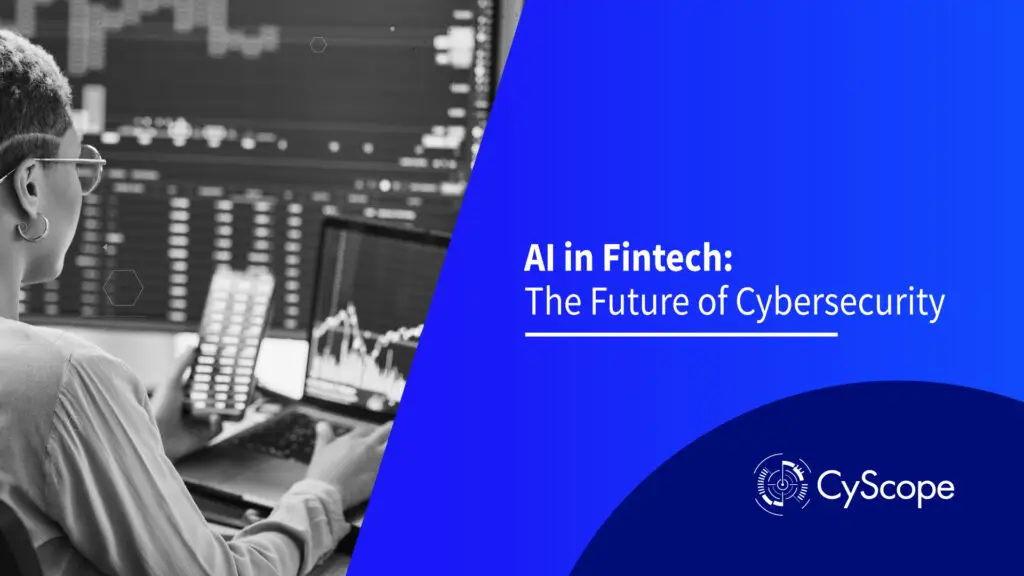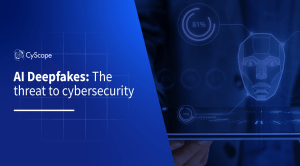In a world where data and financial transactions move at the speed of a click, protecting information is critical. For the fintech sector, which stands out for its innovation and use of technology to facilitate financial services, cybersecurity is a key pillar for maintaining customer trust and regulatory compliance. In this context, artificial intelligence (AI) has emerged as a powerful tool to anticipate, identify and mitigate cyber threats.
In this article, we will explore how AI in fintech is transforming cybersecurity, the challenges it faces and its role in preventing fraud, protecting data and strengthening trust in the financial sector.
AI in Fintech: Why is it Crucial for Cybersecurity?
The use of AI in fintech has been key to improving efficiency and security in a variety of areas, from fraud detection to improving user experience. As the fintech sector grows, so do cyber risks, especially due to the handling of large volumes of personal and financial data. AI enables fintechs to analyze large amounts of data in real time, detect unusual patterns of behavior and ultimately strengthen their cybersecurity systems.
Read more: Protecting digital assets in fintech with CyScope
AI and Fraud Detection
One of the biggest challenges in the fintech industry is fraud, especially payment fraud, phishing and unauthorized access. Traditional fraud detection methods are often manual, costly and ineffective in identifying new attack techniques. AI, however, has the ability to detect fraud patterns in real time.
AI systems can analyze a huge volume of transactions and compare each one with millions of known patterns, quickly detecting irregularities. Some of the most common techniques in AI fraud detection include:
- Supervised Machine Learning: By training algorithms with historical fraud data, patterns that point to suspicious activity can be predicted and recognized.
- Behavioral Analytics: AI systems can monitor the behavior of each user and alert when they detect unusual actions, such as transactions from unrecognized locations or unusual purchases.
- Anomaly Detection: AI quickly identifies any anomalies in the data by comparing with average user behavior, facilitating intervention before fraud is successful.
Data Protection with AI
Data protection is critical in the fintech sector, and AI is an important ally in ensuring the security of sensitive information. AI systems in fintech can protect data in a number of ways:
- Intelligent Data Encryption: AI can manage encryption and decryption processes in real time, ensuring that sensitive data is protected both in transit and at rest.
- Network Segmentation: AI helps divide the network into smaller segments, allowing fintechs to restrict access to information and limit the movement of attackers within the system.
- Real-Time Malware and Threat Detection: Using machine learning, systems can identify malware, viruses and other emerging threats by analyzing patterns and data in real time.
Threat Response and Mitigation
AI is not only limited to detecting threats, but also contributes to threat response and mitigation. The automation that AI enables is essential for fintechs to respond to security incidents quickly and accurately.
- Security Response Automation: AI systems can initiate automatic responses, such as blocking an account or suspending a transaction, if a serious threat is detected. This significantly speeds up response time and reduces the risk of an attack progressing.
- Continuous Learning: AI algorithms learn from each detected threat, improving their ability to identify similar attacks in the future. This ability to adapt and continuously learn strengthens security in a fintech environment facing constantly evolving threats.
- Attack Simulations: Fintechs are implementing AI to perform simulations of cyberattacks, allowing them to test the robustness of their defenses in real time. This helps identify potential points of vulnerability before attackers can exploit them.
Challenges of AI in Fintech Cybersecurity
Despite the benefits, the use of AI in fintech is not without its challenges. Some of the most important include:
- Algorithmic Bias: AI relies heavily on the data it is trained on. If the data is incomplete or biased, the system may fail to detect specific threats or perform unnecessary blocking.
- Dependence on Data Quality: The effectiveness of AI systems is directly related to data quality. Fintechs must ensure that data is reliable, complete and representative to obtain accurate results.
- Risks of False Positives: Although AI systems are effective, there is still a risk of false positives, which can affect the customer experience if legitimate transactions are blocked or accounts are suspended in error.
You may also be interested: What is NIS2, and why is it important?
Conclusion: AI in Fintech and its Role in a Secure Future
Artificial intelligence has proven to be a valuable tool for improving cybersecurity in the fintech sector, providing advanced solutions for fraud detection, data protection and automated threat response. However, its implementation requires a careful approach, as AI can also face challenges that must be addressed with high-quality data and effective monitoring strategies.
For fintech companies, the use of AI in cybersecurity not only enhances their protection against attacks, but also strengthens customer confidence and allows them to operate more efficiently. As the industry continues to evolve, the integration of artificial intelligence will be key to maintaining resilience and ensuring that every transaction is protected.
Are you looking to improve the cybersecurity of your fintech company with the latest technologies? Contact us to learn about our solutions and take your security to the next level!





